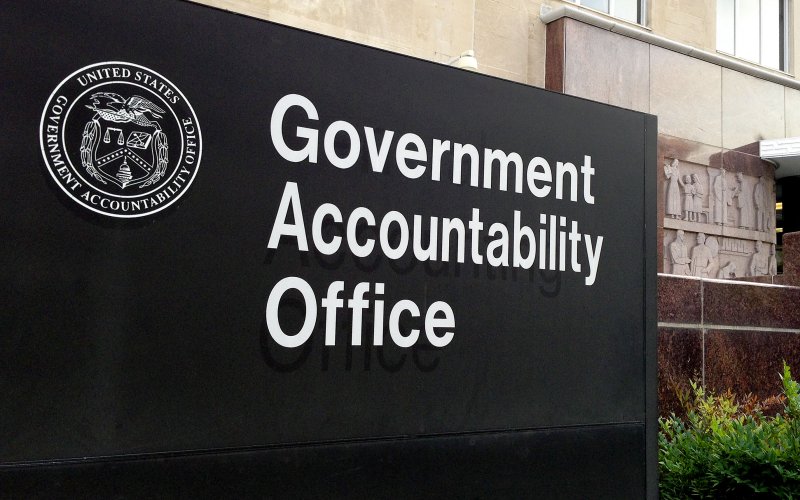Great Danes Turned Watchdogs

The U.S. Government Accountability Office (GAO), often referred to as the “government watchdog,” has been a longstanding partner of Rockefeller College. Over the years, GAO Recruitment Program Manager and Rockefeller advisory board member Deborah Eichhorn, MA ’88 has helped numerous Rockefeller undergraduate and graduate students secure internships and full-time employment with the independent, non-partisan, and fact-based agency.
ABOUT GAO
Celebrating its 100th anniversary in 2021, GAO oversees how the federal government spends its funds and provides Congress with recommendations based on facts that will help improve services, while saving taxpayers money. With projects spanning nearly all fields, including cybersecurity, social security, foreign policy, and public health, GAO is a trusted advisor to Congress. Most recently, GAO has been evaluating the largest response to a national emergency in U.S. history — the $2.6 trillion COVID-19 response legislation — and making recommendations about how to improve its effectiveness in dealing with public health issues and the economy.
THE INTERNSHIP
Based in Washington, D.C., GAO’s internship program is offered year-round to undergraduate and graduate students. Students can also work at one of the 11 field offices located around the country.
“Interns are integrated into their assigned teams and given substantive projects,” said Eichhorn. “More specifically, interns learn how to conduct federal audits and program evaluations, and apply that knowledge as part of a team; assist GAO analysts in planning and conducting in-depth reviews of executive and legislative branch programs; collect appropriate data, analyze the data, and develop data-based findings and conclusions; and present information both orally and in writing to diverse audiences.”
GAO’s prestigious internship program serves as a springboard for future public service leaders. In many instances, high-achieving interns have been able to secure full-time positions following their stints, including Rockefeller College alum Matt Lowney, MPA ’15. Lowney served as a management and program analyst intern at GAO during the third semester of his MPA program. While interning in D.C., Lowney attended classes virtually and returned to UAlbany for his final semester with a job offer in hand. He currently serves as a senior analyst at GAO.
FULL-TIME AT GAO
Rockefeller College has a wide network of alums that currently work for GAO, including Lowney, Seraé LaFache-Brazier, BA ’17, MPA ’18, and Shannin O’Neill, BA ’01, MPA ’02. Read more about their experiences at GAO:
Matt Lowney, MPA ’15
Senior Analyst
What are your roles and responsibilities?
I lead and assist with reviews of federal programs, operations, and activities related to homeland security and justice. For these reviews, we examine and analyze documents and data, and interview officials at all levels of government, private entities, and non-profit organizations, as well as people who use or are affected by federal programs, operations, and activities.
What has been a highlight at GAO?
I served as a team member on review of the Federal Emergency Management Agency’s (FEMA) disaster assistance program for individuals and families. During this review, we traveled to areas impacted by 2017 and 2018 hurricanes — Texas, Florida, Puerto Rico, and North Carolina — and spoke with government officials, non-profit organizations, and disaster survivors to better understand any challenges officials and survivors experienced with the program and opportunities for improvement.
Seraé LaFache-Brazier, BA ’17, MPA ’18
Analyst, Strategic Issues Team
What are your roles and responsibilities?
As an analyst, I work as part of a team to review federal agency programs and operations. This work typically results in a written GAO report and/or congressional briefings and hearings. Analysts use their methodological, research, documenting, writing, and presenting skills to present findings and often, recommendations for executive action. Strategic Issues focuses on the federal government’s role in achieving national goals in an increasingly networked environment and its ability to deliver and ensure accountability for meaningful results. The strategic issues team is somewhat unique because the team addresses cross-cutting challenges that have impacts on the federal government as a whole, such as the nation’s fiscal health or critical skill gaps in the federal workforce.
What has been a highlight at GAO?
A highlight of my position at GAO has been my experiences working with a wide range of people with different subject matter expertise both internal to GAO as well as at various agencies during engagements.
Shannin O’Neill, BA ’01, MPA ’02
Assistant Director, Information Technology & Cybersecurity Team
What are your roles and responsibilities?
I oversee audit teams in analyzing information technology acquisition challenges and identifying ways to improve the accountability and performance of federal government IT programs to support the United States Congress. I guide teams of analysts in developing audit methodologies, collecting and analyzing data, interviewing agency officials, developing recommendations for improvement, and writing reports and testimony statements for Congress. In the past several years, my audits have mostly focused on the Departments of Defense, Homeland Security, Commerce and Education. I also coach and develop staff and maintain client relations with members of Congress and their staff. Lastly, I manage hiring for our Information Technology and Cybersecurity team.
What has been a highlight at GAO?
It is always a high point for me when our congressional clients decide to hold a hearing based on the findings from a report I worked on. I find it rewarding to see Congressional oversight in action to hold agencies accountable in an effort to improve government operations. I have worked on a number of testimony statements over the years related to topics such as the Department of Homeland Security’s implementation of the Human Resources Information Technology investment and preparations for the 2020 Census.
This article originally appeared in Rockefeller College’s Fall 2021 News Magazine.


